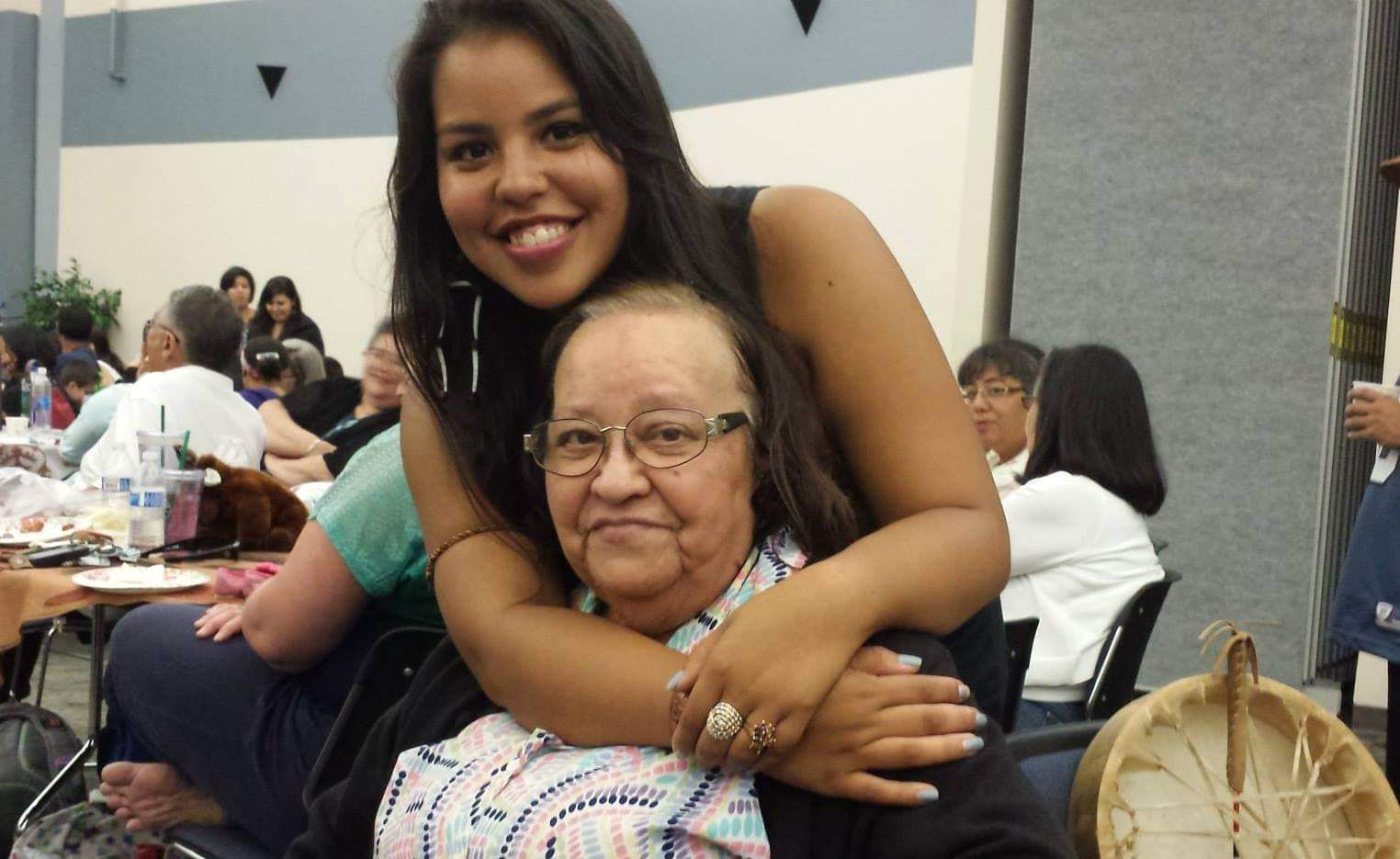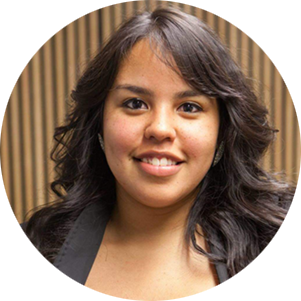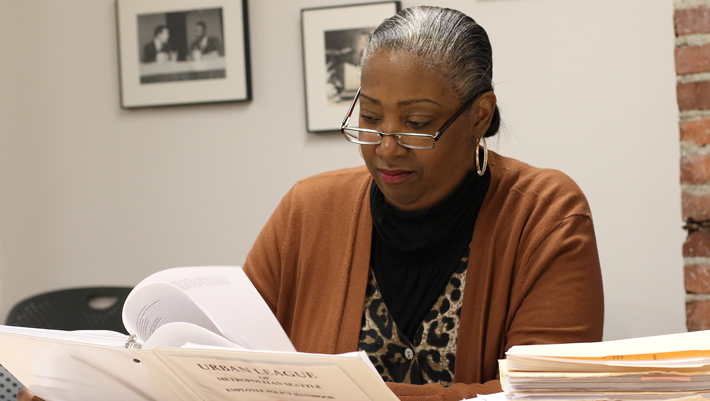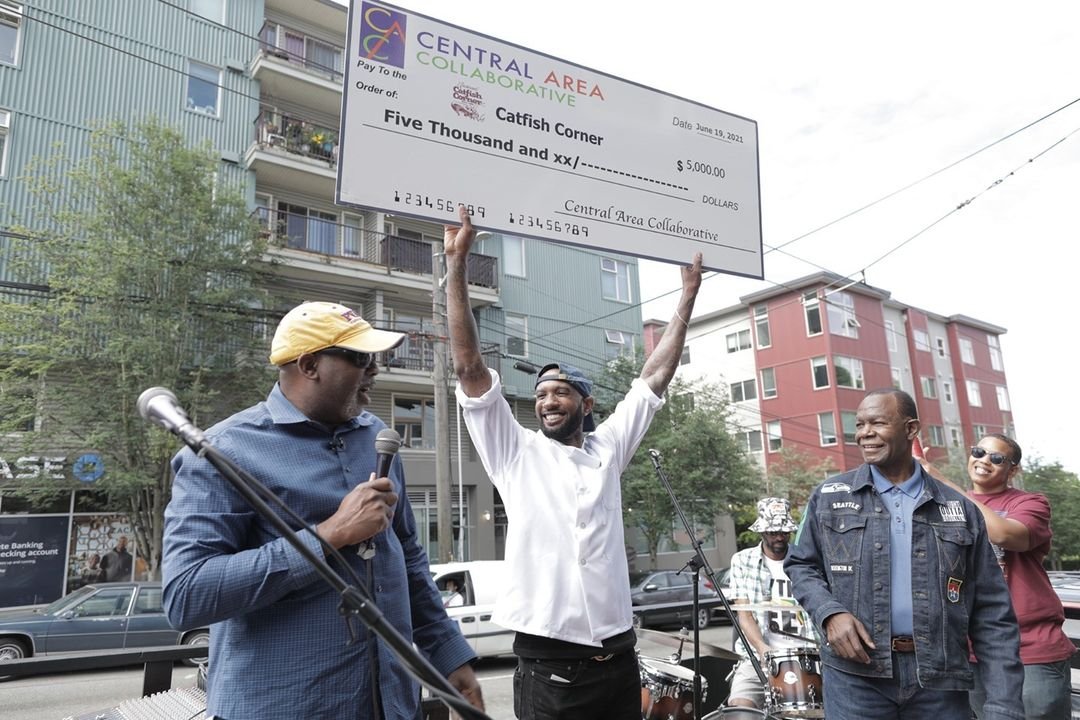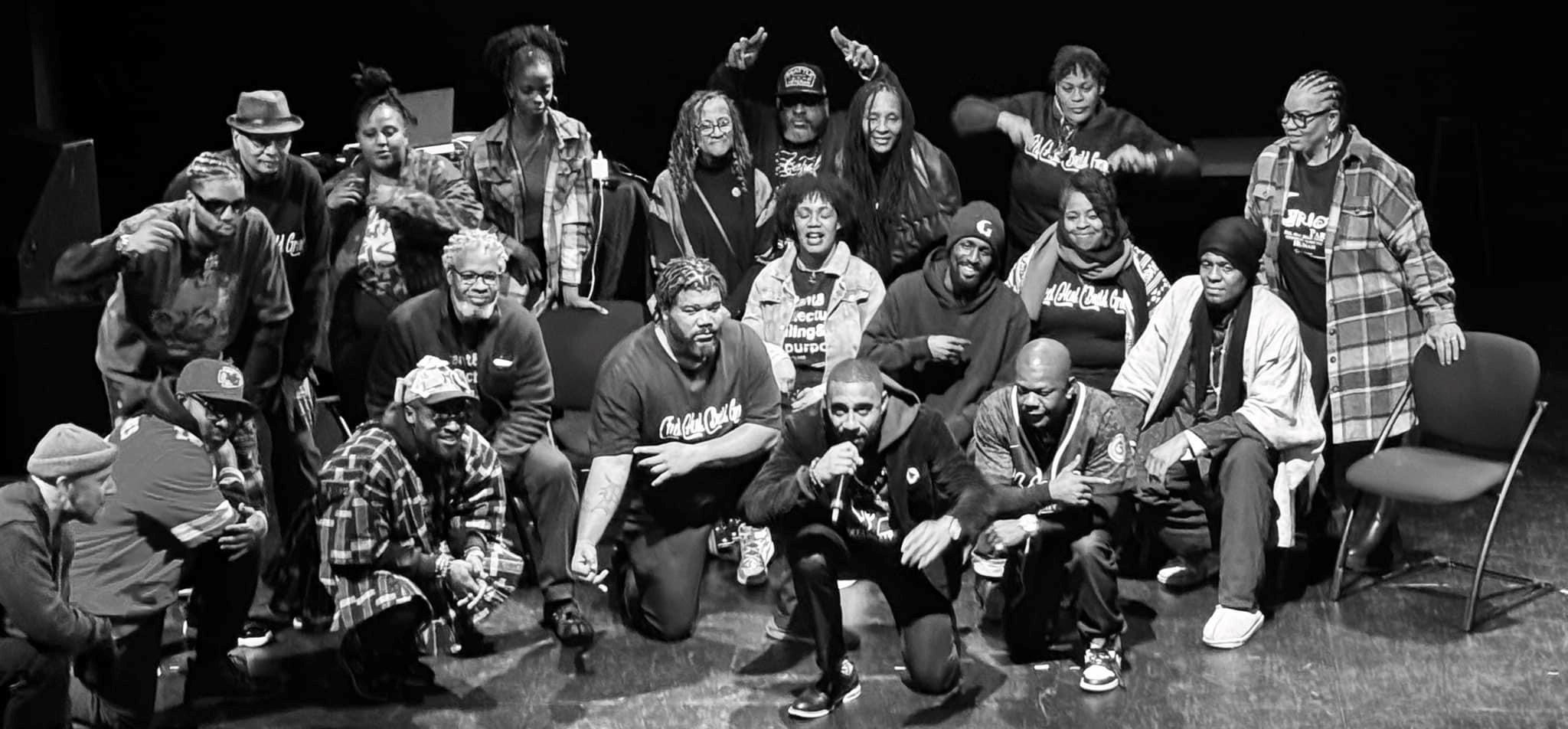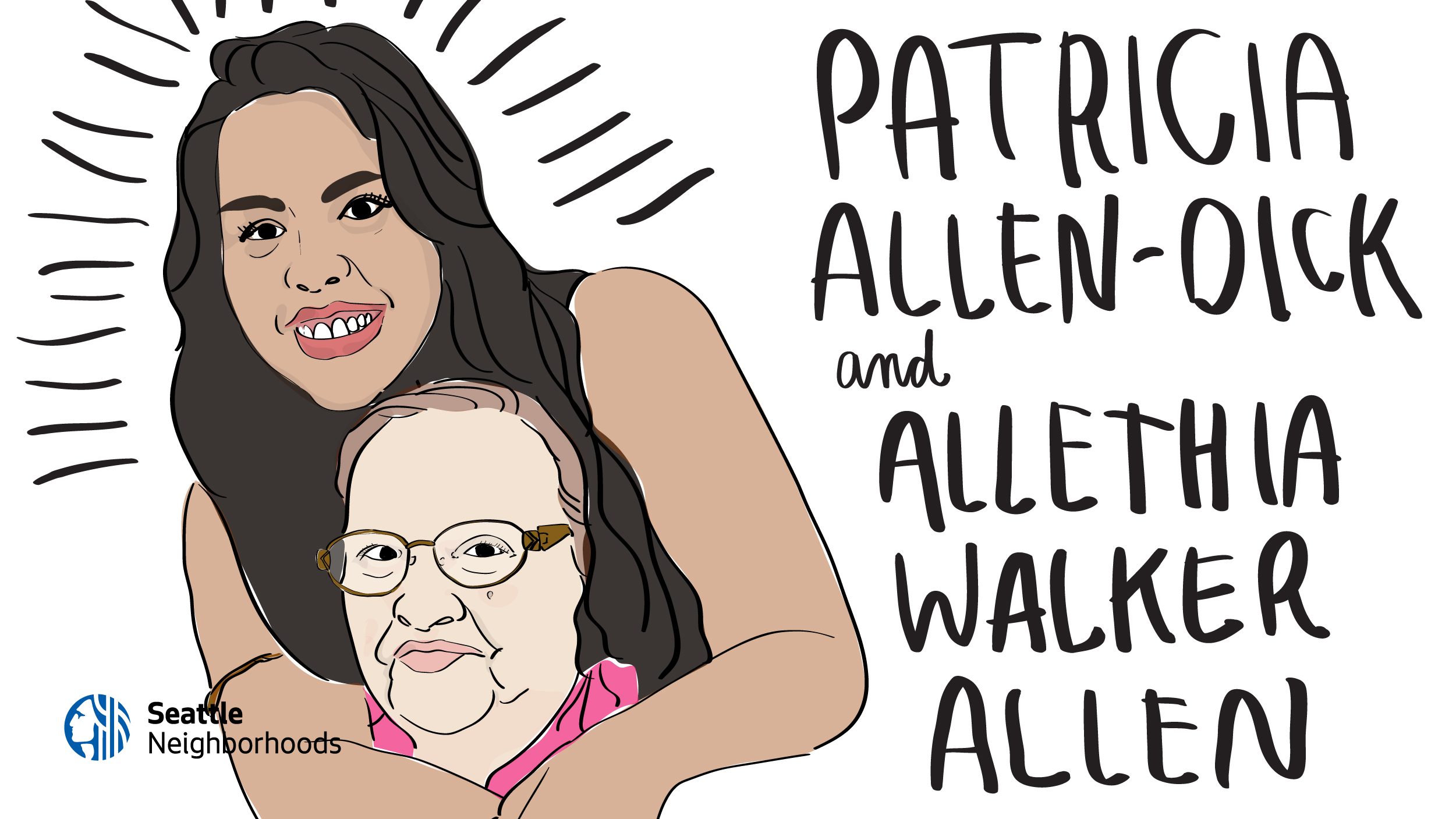
In celebration of Black History Month, we are hosting a series of profiles and stories to amplify and honor people, businesses, organizations, and events connected to the history of Seattle’s Black community.
by Patricia “Chookenshaa” Allen-Dick
I was blessed to be raised by my grandmother and to have met my maternal great grandparents in my lifetime. I will never forget my great grandpa’s words “We are the embodiment of United States history. We hold history in our blood.” My family’s story is unique to our east coast and southern Black & Native roots. We come from over five generations of Black and Native intermarriages: Caribbean, southern and northeast intermarriages. At a time when it was illegal in many states to live outside a reservation as an “American Indian,” our family fell into the “One-Drop Rule.” This meant that regardless of being multiethnic, our family had enough African ancestry to be required to live, work, and be educated as Black people. My grandmother, Allethia Walker Allen, comes from Mohawk, Seneca, Stockbridge Mohican, Eastern-Band Cherokee and enslaved African ancestry from both Virginia and North Carolina. My grandfather came from Afro-Caribbean (Montserrat Island) ancestry (because of displacement from African enslavement), Taíno, Arawak and Irish exile histories.
During the Great Depression, my great-grandfather, Henry Clay Walker, owned a local car dealership and repair shop in Pittsfield, MA. He would hire young Black men in need of work due to ongoing layoffs and high unemployment rates in the 1930s. He also provided mutual aid at a time when social services were not available to community. My great-grandmother, Irva Osterhout Walker, would tell my grandmother childhood stories about a distant cousin, the late Scholar and NAACP Founder, W.E.B. Du Bois. These moments of resilience and profound examples in leadership inspired my grandmother to pursue a career in service work.
Being the only child of a small business owner, my grandmother was fortunate to have enough financial support to go to Bennett College, an Historically Black Women’s College in North Carolina. She studied social work at Bennett and later went on to receive a master’s degree from Boston University. Shortly after, she met my grandfather, William Allen, a graduate from West Virginia State College. They married and had their first child, my Uncle Bill Allen Jr. When the great migration started, my grandfather was offered an opportunity to move west. After visiting several places, my grandmother chose Seattle as the place to call home. Because our family identified as Black and Native, they could only live in the redlined district. Cherry Street in the Central District became my family’s new home.
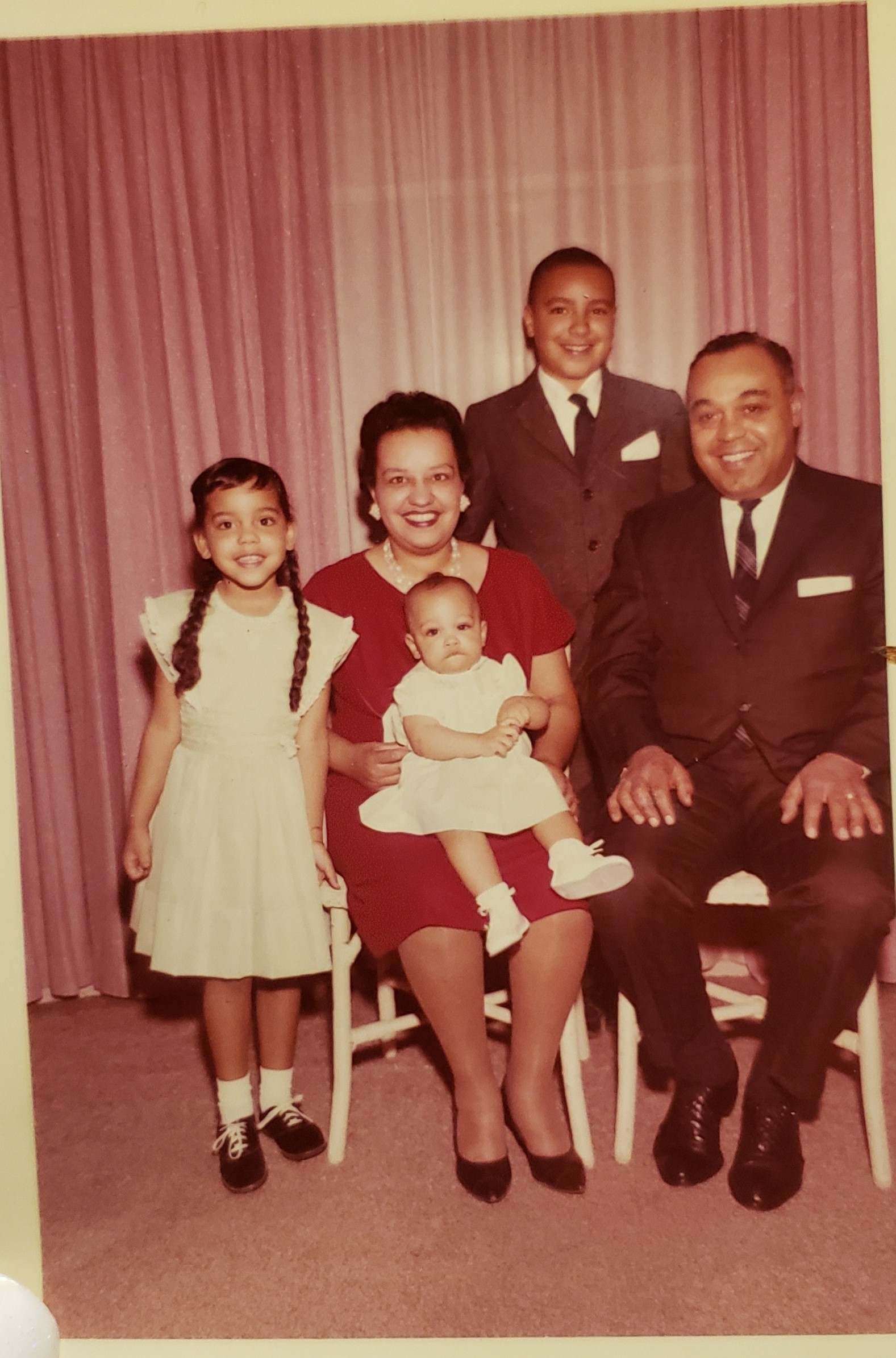
Left to right – Gwen Allen (my mother), Allethia Walker Allen (my grandmother), Rosemary Gacel Allen (baby, my aunt), William Allen Jr. (my uncle), William Allen Sr. (my grandfather)
My grandfather owned the second-ever, Black-owned funeral home, Allen’s Evergreen Funeral Services on Madison Street. As our family became more familiar with the community, my grandfather befriended Reverend Dr. Samuel Berry McKinney of Mount Zion Baptist Church. The two forged a strong partnership in civil and community engagement. The efforts of Rev. Dr. McKinney and the Central District community are what brought the legendary Reverend Martin Luther King Jr. to Seattle years before his “I Have a Dream” Speech was ever given. When King visited, my grandfather had the only Cadillac fleet service in town and was chosen to be King’s escort for the duration of his visit. Although my family no longer owns the funeral home, it is a history we take great pride and responsibility in holding.
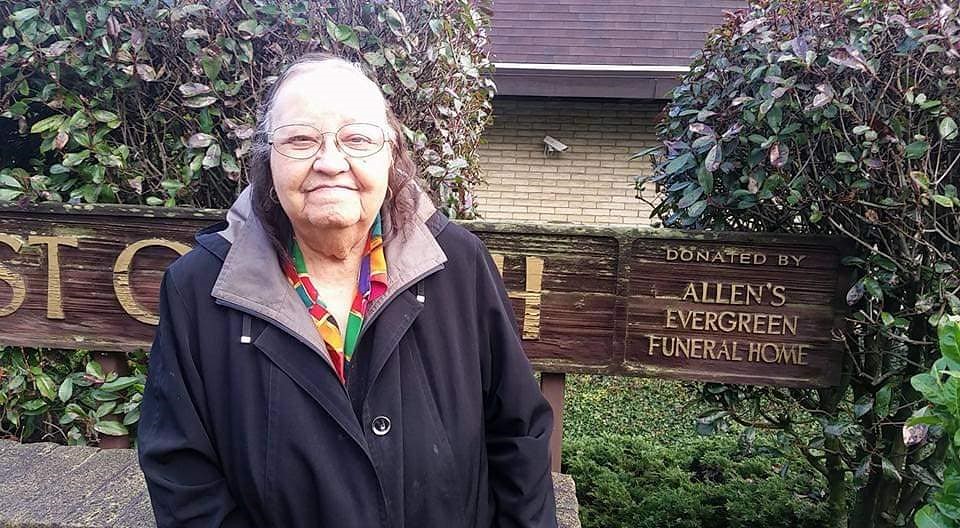
Although the legacy and impacts my grandfather held in the community are honored by my living family, our story does not end there. My grandmother worked incredibly hard to create new spaces and opportunities for multi-ethnic women in academia and organizational leadership. After overseeing a women’s shelter for several years, she became a professor at the University of Washington School of Social Work. She finished her Ph.D. dissertation from Walden University titled “The Black Woman Professional and Administrator in Education: A Study of Role Experiences in Policy Formation and Development.” She served on the board of Planned Parenthood and became the first woman of color to receive tenure at the School of Social Work. Through the years, she continued mentoring women of color and pursuing graduate degrees in social work, even after retirement. At 94 years old, she remains an inspiration for my family. She inspired her children to pursue degrees in social work. My mother, Gwen, received a double master’s in social work and business and my Aunt Rosemary leads tribal social work efforts in Stockton, California.
I have also been inspired by my grandmother’s wisdom and guidance in my work. My maternal grandmother raised me in White Center from early childhood to adulthood. Being a grandma’s girl has influenced how I hold space in community. Although this is a privilege that came from the unfortunate circumstances of not being raised by my parents, I have done my best not to create space out of entitlement, but out of the understanding and responsibility of being a Black and Native woman. I currently work as the Liaison for the National Coalition to End Urban Indigenous Homelessness with Chief Seattle Club and serve as an elected delegate for my father’s peoples, the Tlingit & Haida Tribes of Southeast Alaska. Although I have held roles in education and involve myself in Black and Native community service efforts, I continue to embrace my grandfather’s legacy by supporting healing and grief work as an advisor for Gathering Roots Wellness and 206 Zulu’s Restorative Justice Committee. As an undergrad, I had the opportunity to study International Human Rights through Truth & Reconciliation efforts in both South Africa and Peru. I was blessed with joining organizations such as Women of Color Speak Out, to support grassroots efforts in intersectional work in environmentalism, patriarchy, classism, and racism. I am proud to continue upholding the responsibilities to community that were taught within my family line.
I hope to follow my grandmother’s values of self-determination and making space for those that don’t already have opportunities to lead. I hope that our family story reminds people that it is possible to make an impact in healing and social justice in various ways and spaces. My grandmother hopes that her story inspires young folks, especially those from marginalized genders, to value their rights to self-determination and service; and that, no matter how educated and experienced you are, humility and service to others are virtues that always need to align with leadership. “You’re never too good to serve others and stay involved in community.”
